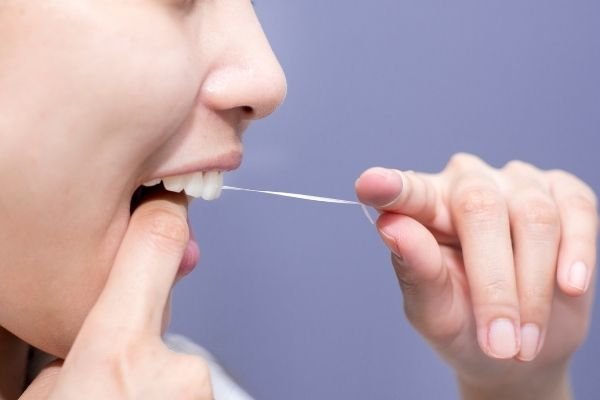What is CRPS
Complex Regional Pain Syndrome (CRPS) is a horrible disease that can affect any organ or part of the body. It’s also known as Post Traumatic Pain Syndrome and is a very under diagnosed condition that can make many people feel like they’re going crazy but CRPS is well-documented going back over 150 years ago. It is often caused by some sort of trauma, fracture or surgical procedure and is essentially a disease of the sympathetic central nervous system. CRPS is divided into 2 types. Type I does not involve a nerve lesion and Type II does involve a specific nerve that has been damaged.
How CRPS Affects Your Teeth
CRPS signs in the dental patient can include not being able to get numb, the bite feeling off and never comfortable, muscle dysfunction that doesn’t respond to traditional treatments, new pain after a dental procedure, pain that spreads past the mouth, inflammation and swelling with no visible sign of infection, and extreme cold sensitivity of the teeth, to name a few. There is also evidence that the jaws, jaw joints and teeth can directly affect CRPS. Everyone has a TMJ (temporomandibular joint) but not everyone has TMD (temporomandibular dysfunction) which many times CRPS and TMD go hand in hand.
Symptoms

"I just went through TMJ jaw surgery myself in September 2021 and am still in surgical braces. Part of my screening process was answering a whole lot of questions regarding the signs for CRPS. I was surprised that as a practicing dental hygienist for over 25 years, I really knew little about this painful condition."
Here are the classic signs of CRPS
-
Sweating and eye tearing
-
Difficulty in moving the mandible
-
Tremors
-
Pain to slight touch in area
-
Pain from cold or wind
-
Constant burning pain
-
Swelling in the painful areas
-
Flushing or redness
and these are the signs of TMD
-
Frequent headaches
-
in the neck and shoulders
-
Tooth sensitivity or toothaches
-
Pain in or around the ears
-
Jaw pain, muscle soreness, and facial pain
-
Tinnitus, or ringing in the ears
-
Difficulty closing or opening the mouth
Complications
CRPS is dangerous in the sense that if it isn't diagnosed and treated early, it can lead to more impairing conditions, for example -
Atrophy or Tissue Wasting
In case you're having trouble moving a leg or an arm due to pain or stiffness, your muscle, skin & bones may begin to weaken and deteriorate.
Muscle Contraction
You may also experience tightened muscles causing your toes, foot, hand and finger to contract in a locked position.
How to Prevent CRPS
Although CRPS can occur to someone for completely random reasons and can't be anticipated, there's still a thing or two you could do to help prevent it's occurrence. Here's a few.
Vitamin C After Fracture
Recent studies suggest that people who've taken a high dosage of Vitamin C following fractures tend to be less prone to CRPS in contrast to those who haven't.
Exercise
You can exercise on a regular basis to help prevent CRPS. Researchers have found that people who've had a stroke, but got out of their beds and started walking sooner, had lesser risks for developing CRPS.
Avoid Injuries
Crushing injuries & fractures in an arm or leg can lead to CRPS. You could try avoiding injuries to help prevent CRPS.

Things to Keep in Mind
1. Brush & Floss - It’s important to brush and floss your teeth regularly. However, patients impaired by severe pain may sometimes feel reluctant to devote themselves to the process. Make sure to stick to your routine of regularly brushing and flossing (waterpik is great as well) to steer clear of poor dental hygiene.
2. Medicine - Many times prescribed pain medicines will lead to dry mouth (also known as xerostomia). This may result in gum disease and tooth decay. To combat the Dry Mouth condition, you’ll need to sip on water regularly, use dry mouth lozenges, or chew sugarless gum. You may also consider using our Moisturizing Mouth Spray.
3. Diet - People suffering from CRPS usually resort to sugary, comforting food to ease their pain. This can result in increased tooth decay and gum disease.
So then, what to do?
Treatment
For me, I was having such horrible vertigo and tinnitus that I couldn’t take it anymore. Mind you, I had gone through NUMEROUS procedures over the 30 past years of my life, including braces twice, multiple splints, acupuncture, massage, chiropractic and various laser type therapies. My last resort was surgery and now over 6 months later, I am finally doing so much better. If you suffer from CRPS I would greatly encourage you to seek out a practitioner that is familiar with this disease. People fly in from all over the world to visit the Piper Clinic (Dr. Shah did my surgery) in St. Pete because they really are the foremost leader in treating TMD issues with a 99% success rate and I highly recommend them.
I would also recommend renting what’s called a Bemer Class II medical device from someone in your area as it creates perfusion (think microcirculation) which opens up the capillaries and allows the body the best chance for healing itself. I use mine faithfully every day and am gradually getting the nerve damage in my jaw to get better over time. Regardless, seek out the root cause of CRPS and have your TMJ evaluated by a qualified professional for a possible causative factor. Believe me, you will be happy you did!
To contact the Piper Clinic directly call (727) 823-3220 or visit https://www.piperclinic.com/
